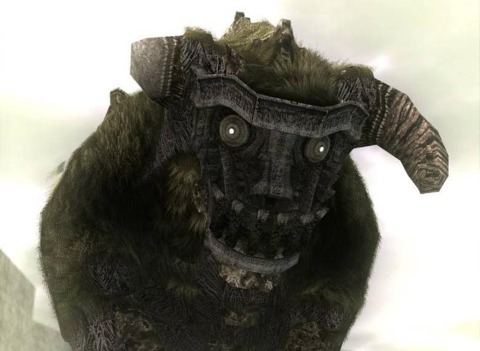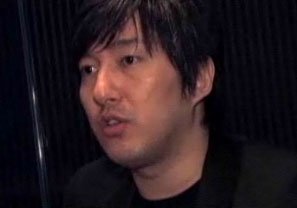GDC 2009: East meets West on all-star panel
No More Heroes's Suda51, Shadow of the Colossus' Fumito Ueda, and Fallout 3's Emil Pagliarulo discuss the state of game design around the world.
SAN FRANCISCO--The 2009 Game Developers Conference has no shortage of big names in the game industry, but few individual sessions can match the concentration of star power at Wednesday morning's "Evolving Game Design" panel. To get a range of perspectives on how the industry is changing around the world, GDC organizers assembled an international all-star panel of designers--Goichi Suda, aka Suda-51 (No More Heroes), Fumito Ueda (Shadow of the Colossus), and Emil Pagliarulo (Fallout 3)--along with localization specialist and 8-4 Ltd. executive director Mark MacDonald.

The session started off with a bit of mutual respect, as Suda introduced Pagliarulo, touting the designer's work on Fallout 3 and The Elder Scrolls: Oblivion. Suda said he has been playing through Fallout 3 in his spare time. Pagliarulo took on a reverent tone to introduce Ueda, talking about the creator's legacy thanks to Shadow of the Colossus and Ico. Ueda wrapped up the introductions by praising the distinctive style of his friendly rival Suda, most notably in Killer 7.
With introductions out of the way, Pagliarulo spoke about his particular approach to game design. The heart of it, he said, is that he wants to show gamers something they haven't seen before. He also wants to make games that he himself would want to play, and often the two goals point to the same type of game.
Suda explained that when he plans his games, the process is similar to Pagliarulo's. He first thinks about how to achieve his goal, looking for inspiration from TV, film, and other games.
"Being alone is very important," Suda said. "I will go to the bathroom and try to poop, and then I'll come up with a good idea."
After the crowd laughter died down, MacDonald said he now knows where the idea for the save game system in No More Heroes came from.
While all three designers said they start with a goal, that goal changes along the development path. Pagliarulo talked about being "brutally honest" with himself about his game. And while something can work on paper, he never knows if it will work and be fun until he plays it.
At one point in Fallout 3, there's a giant robot named Liberty Prime. Players follow it and witness the carnage it creates. At one time in development, the robot was supposed to be five times bigger and players were supposed to ride inside the robot's head. But partway through development, logistical problems forced the team to scale the idea back.
When it came to evolving designs, Ueda brought up Ico. The final version of the game is more abstracted, but Ueda said it was originally intended to be more vivid. Shadow of the Colossus also changed. The concept first called for it to be a multiplayer game with people coordinating to bring down each of the game's giants. That too had to be scaled back.
When it came time for Suda's acknowledgement of midstream changes, the designer joked, "I make a perfect design plan, so it never changes."
He corrected himself soon after, saying the design is always changing. He always wants to try a new thing, but he said he restrains that impulse sometimes to go easier on the development team that has to implement his changes.
Speaking of the development team, Pagliarulo discussed the need to balance the feedback from the team with his own instincts when it comes time to make changes or cut features. Feedback from the gamers is also important. Pagliarulo noted that people were upset that Fallout 3 had a proper ending instead of an open-ended quest that continues on.
"It's as much a sequel to Oblivion as it is to Fallout," Pagliarulo said.
Compromises are part of the process for Ueda. The designer said he dreams up games that cannot be created on consoles but then has to change the idea to fit what can be done. Sometimes, though, he said that a "chemical reaction" happens and the game turns out better than the original idea. That sort of serendipity is happening on his current project, the developer teased.
Back to the development team, MacDonald asked Suda what he does when he's the only one who wants to do something. While he jokingly admitted he would play the "I own the company so we do it my way" card, he said he tries to explain his vision to the team. That was a problem sometimes during development of Killer 7, Suda said, but oftentimes he will look to focus testers or the producer's opinion for a perspective slightly removed from the game's development.
While Suda and Pagliarulo had run into these sorts of disagreements, Ueda said he had selected his team in such a way that serious "world view" disagreements rarely came up for him. He too talked about the importance of focus testers, and he admitted that once he's deep in development, he often has no idea if a game is fun or not. So he stands behind focus testers as they play and tries to see the game with fresh eyes.
Pagliarulo also admitted losing sight of the fun. He recently tried to go back and play Fallout 3 after a few months away from the game and found that he still "couldn't see the game" in it. Instead, he just looked at it as a series of gameplay systems and under-the-hood mechanics.
Apparently not content when the developers acknowledged they couldn't find the fun, MacDonald asked if any of the designers had any major regrets about any of their games. A few moments of silence later, MacDonald quipped that they came from "the George Bush school of game design."
Suda wouldn't call it a regret, but he said he always wants more time to make his games, a sentiment Ueda quickly echoed.
Looking ahead, MacDonald asked the developers where they see trends in game design headed and what's going on in the industry that personally excites them. Suda said he had a sense of immersion and storytelling ability increasingly bringing people into the game, pointing to Shadow of the Colossus and Fallout 3 as prime examples. Suda said the industry has to pay attention to how to express feelings, referencing--but not naming--his favorite David Cronenberg film.
"They put the parasite into the belly button, and then they play games," Suda said. "I think games might go in that direction."
Before looking forward, Pagliarulo looked back to the virtual reality craze of the '90s. He said he wants to re-create that, just without the gadgets and glasses. He wants to create characters that feel like real people, a world that feels like a real place. He said he's not very interested in half-hour-long cutscenes, but wants those stories told through gameplay. He cited the end of Call of Duty 4 as a particularly powerful example of that.
"I think people may be surprised to find out how much games like Killer 7, No More Heroes, and Shadow of the Colossus inspire us with their storytelling," Pagliarulo said. "Because those games don't need reams of dialogue."
Ueda explained his dislike for conversations between characters, saying the repetition required to get the point across and remind the audience what's going on can hurt the game. Pagliarulo picked up on that point and said it's easy to run into conflicts when you're trying to make dialogue sound normal and natural but are also trying to provide players with all the feedback and guidance they need.
Suda said his storytelling process might be different from that of his fellow panelists, saying his focus is to have a story happening in the background and embedded in the dialogue. Ideally, when a player plays the game just once, the entire story wouldn't come to the forefront. Pointing to the abundance of colorfully insane minor characters in Fallout 3, Suda asked what was going on in Pagliarulo's head when he wrote for them.
"I would like to open up your brain and look at it," Suda said.
For the audience Q&A session, Suda interrupted and asked Ueda and Pagliarulo what games they're working on next to audience applause. Pagliarulo said the Bethesda team was focusing on DLC at the moment, while Ueda said he couldn't talk about his game but said after much cajoling that the sense of the game would be similar to Ico, adding, "Who is your partner?"
Suda teased that someone from EA was behind him and would shoot him if he said anything about his upcoming collaboration with Resident Evil designer Shinji Mikami, but he then teased, "Mikami is making a horror-- Oh, I'm sorry, I shouldn't have said that."
While brief, the Q&A session did include a question directed specifically to Ueda about Shadow of the Colossus being held up as a poster child for people making the argument that games are art.
"Personally I don't think that way," Ueda said. "We are making games to entertain people. Sometime the team's personalities may be reflected onto the game and it may look like art, but we're making games to entertain people. That kind of feedback is welcome, but that's not what I'm trying to achieve here."
Got a news tip or want to contact us directly? Email news@gamespot.com

Join the conversation